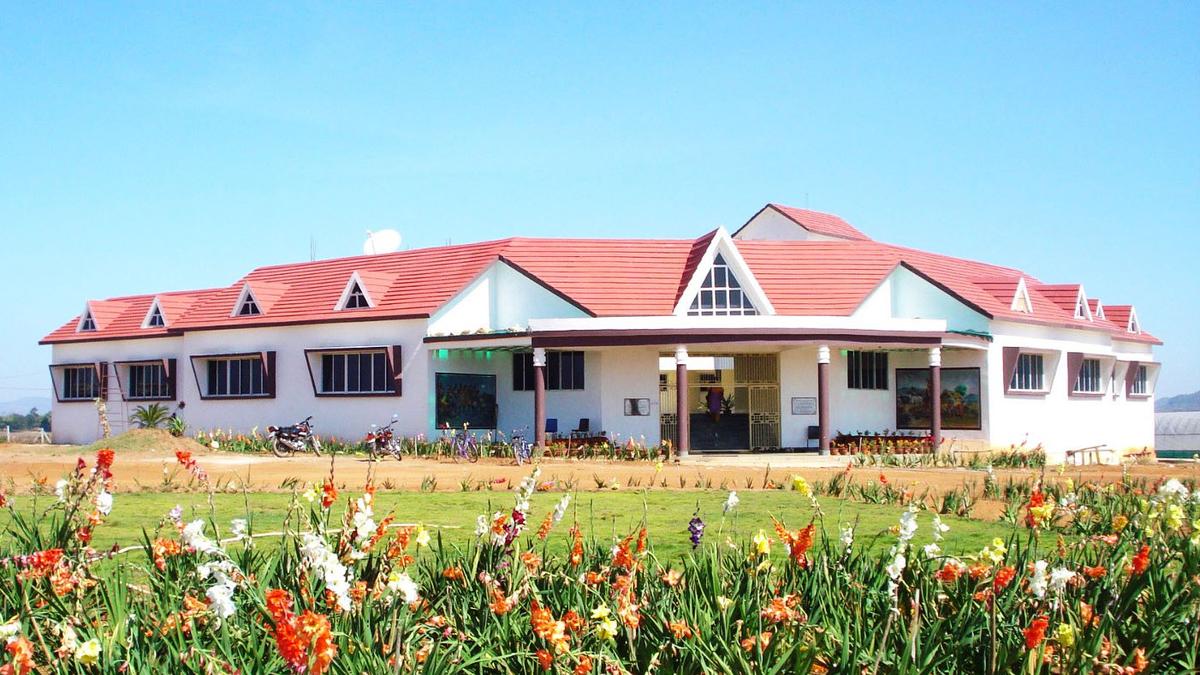
MSSRF’s Tribal Agrobiodiversity Centre in Jeypore, Odisha, recently held a national consultation, which brought together different stakeholders and fostered discussion on how to build climate resilient, sustainable, and inclusive seed systems. From this consultation, a road map started to emerge on the way forward. Photo: Facebook.com/bptabc
Imagine an India where every farmer grows the same handful of crops — wheat, rice, and a few vegetables — while thousands of traditional seed varieties disappear. This is not a distant future; it is happening now.
For centuries, India’s seeds of traditional varieties have been the backbone for food security and a key component of the country’s rich cultural heritage. While new hybrid varieties have held the promise of high yields, they have come with a cost — greater dependence on chemical fertilisers, water-dependant farming, increased vulnerability to climate shocks, and altered food quality and nutrient content. The irony? At a time when extreme weather events are threatening food production, we are sidelining the very varieties that can withstand droughts, floods, and replenish depleted soils.
Structure of the food system
Even when we know their benefits, why are traditional varieties disappearing? The truth is: the problem is not just about seeds of traditional varieties; it is about how the entire food system is structured, creating issues that make it hard, if not impossible, for traditional seeds to survive. The first issue is of market demand and consumer preferences. Most Indian consumers unknowingly contribute to the loss of traditional seeds. Supermarkets, government food programmes, and households favour high-yielding rice and wheat, sidelining traditional, climate-resilient grains of millets, pulses and indigenous rice varieties. As there is no demand, farmers hesitate to grow these varieties.
The second issue is that unlike hybrid seeds that are mass-produced and sold commercially, traditional seeds rely on community exchange and local conservation. However, India lacks enough well-funded community seed banks to store and conserve these varieties.
Third, India’s agricultural policies have historically promoted high-yielding varieties, in a well-meaning attempt to prioritise food production and boost food security. However, this has inadvertently caused a trade-off in terms of biodiversity and nutritional quality. While initiatives such as the Odisha Millet Mission have attempted to change this, most government subsidies and procurement programmes are slow to catch up. Even agricultural research and development has focused more on increasing productivity of a few crops, rather than focusing on conserving and improving genetic diversity and enhancing climate resilience.
Conservation efforts
While challenges persist, the fight to save India’s traditional seed varieties is not lost. Many organisations have been leading the way in conserving and reviving indigenous varieties and neglected crops for over 30 years. For instance, MSSRF’s Tribal Agrobiodiversity Centre in Jeypore, Odisha, recently held a national consultation, which brought together different stakeholders and fostered discussion on how to build climate resilient, sustainable, and inclusive seed systems. From this consultation, a road map started to emerge on the way forward.
No single solution will work to save India’s seeds of traditional varieties and crops — recognising farmers’ knowledge and rights, strengthening community seed bank networks, initiating alternative seed systems to support local crops and varieties, providing market incentives, and promoting policy changes are all actions that must go hand in hand.
For too long, India’s research and development efforts have focused on improved/high-yield varieties that prioritise productivity over climate resilience. A shift is needed — one that funds participatory plant breeding programmes where farmers work alongside scientists to share knowledge and develop improved traditional seeds.
Well-funded and easily reachable seed banks are critical to prevent seed losses for farmers. Governments must support the establishment of a network of regional conservation centres to prevent India from losing its genetic heritage forever.
Farmers will not grow crops that they cannot sell. The government must create support systems for processing and marketing and provide financial incentives for traditional crop cultivation, recognising their climate-resilient, environmental and nutrition benefits. Expanding Minimum Support Prices and procurement programmes for including these crops into school meals, hospitals, and ration shops can drive large-scale change.
Ultimately, the battle for traditional crops and varieties will be won in kitchens. Awareness campaigns and branding initiatives should highlight the health and environmental benefits of traditional crops. When consumers demand these such produce, the markets will respond, creating a cycle of production and consumption.
Time for action
India stands at a turning point. Rising cost of farming inputs, climate change, depleting soil health, and unhealthy food consumption make it clear that we cannot afford to rely only on high-yield crop varieties and market preferred crops. The good news? We do not need to choose between food security and sustainability. By investing in seeds of traditional crops and varieties, India can create a sustainable food system that is not just productive but also resilient, nutritious, and aligned with its agricultural heritage. The time for piecemeal solutions is over. We need coordinated national efforts and alliances between diverse stakeholders to restore the balance in our food system.
Costanza Conti, Policy Research Lead at the M.S. Swaminathan Research Foundation (MSSRF); E.D. Israel Oliver King, Biodiversity Program Director, MSSRF; Rengalakshmi, Executive Director, Area Operations, MSSR
Published – April 14, 2025 12:15 am IST
